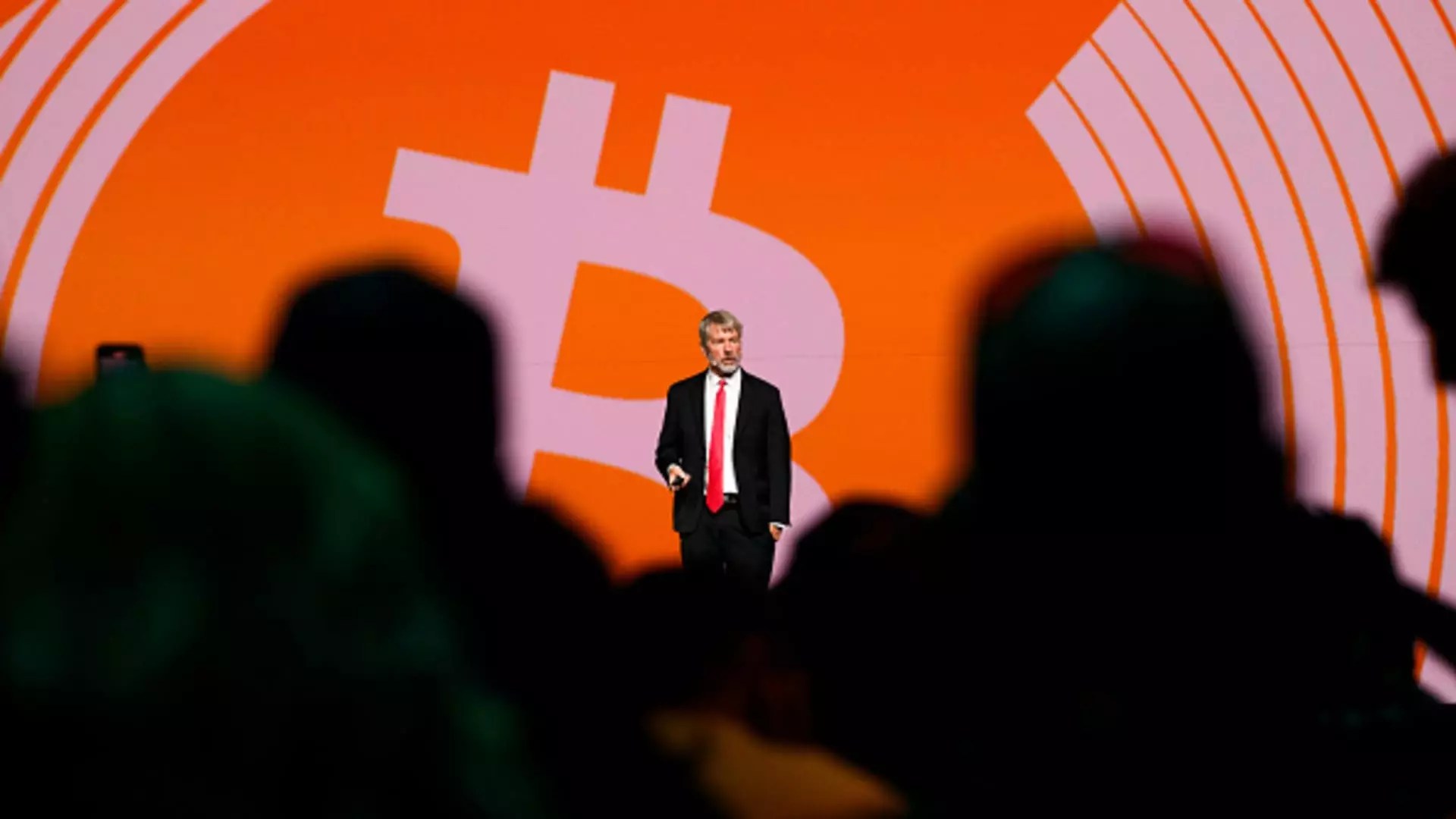In an era where technological evolution often dictates market dynamics, the meteoric rise of Bitcoin as a treasury asset has shifted the landscape of corporate finance dramatically. Companies once skeptical of cryptocurrencies are now jumping on the bandwagon, desperate to harness the potential that digital assets like Bitcoin offer. This trend began with Strategy, formerly MicroStrategy, which has seen its market capitalization soar past $80 billion by embracing Bitcoin as a core asset. Their remarkable success has led others—the likes of Trump Media and GameStop—to attempt similar strategies, yet not all are arising as unequivocal winners.
Trump Media’s recent announcement to raise a staggering $2.5 billion aimed at Bitcoin purchases initially sparked excitement, but reality quickly set in, resulting in a 20% drop in its stock value. Similarly, GameStop’s decision to allocate $500 million towards Bitcoin has failed to incite sustainable enthusiasm within the market. It raises the question: is Wall Street growing increasingly jaded against these speculative endeavors, or is there a deeper structural flaw at play?
Evaluating the Noise: A Wall Street Perspective
Michael Saylor, the chairman of Strategy, has confidently claimed that these short-term setbacks do not reflect genuine skepticism toward Bitcoin itself but rather indicate a failure in execution by these companies. He believes that while the traditional market might not be sold on the immediate benefits of Bitcoin treasury strategies, the long-term perspective is inevitably moving towards acceptance. Saylor’s alliance with Bitcoin advocates paints a thrilling narrative of hope, but the market’s indecisiveness is equally telling.
The question must be asked: Are companies like Trump Media and GameStop merely joining a hype train, or are they genuinely attacking the financial paradigm? Saylor describes these maneuvers as “courageous,” yet he must recognize that perception matters in finance. The initial public enthusiasm may be transient, but it reflects a psychological battle that could hinder these companies’ growth potential within Bitcoin’s evolving ecosystem.
Geopolitical Realignments in Bitcoin Prospects
Under the Biden administration, Bitcoin was often handcuffed by regulatory red tape, but recent actions by the Trump administration symbolize a shifting dynamic in the political landscape towards cryptocurrency adoption. The newly established U.S. Strategic Bitcoin Reserve signifies a monumental change; it reflects a growing acceptance that corporate Bitcoin adoption can play a significant role in the economy. Yet, skepticism still looms as some continue to resist, leveraging the historical volatility of the cryptocurrency realm as a point of criticism.
Moreover, with Vice President JD Vance openly aligning himself with the Bitcoin community, it signals a potential political pivot that could expedite Bitcoin’s acceptance as a legitimate financial asset. Should this momentum carry on, we may witness a tectonic shift in how corporate interests navigate their capital reserves. As Saylor posits, “No force on Earth can stop an idea whose time has come”—this sentiment underscores the belief that Bitcoin could redefine capital allocation across diverse sectors.
The Tension Between Institutional Tradition and Innovation
Despite the palpable excitement around Bitcoin, the corporate world remains hesitant. Notably, Microsoft shareholders recently thwarted an initiative to integrate Bitcoin into the company’s financial strategy. The irony here is palpable; as companies like Strategy capitalize on Bitcoin’s price movements, institutional behemoths appear—perhaps due to their entrenched paradigms—unable to pivot swiftly in favor of what could be the “next tech wave.”
This tension unveils a dichotomy; on one side, you have aggressive new players willing to navigate the tumultuous water of digital currency, while on the other sit established giants, resistant to change. The disparity between those companies embracing digital assets and those clinging to traditional cash reserves creates a compelling narrative of innovation versus stagnation.
The Fragility of Decentralization
Critics who argue that the mainstreaming of Bitcoin may dilute its decentralized ethos often overlook an underlying reality: the potential for cryptocurrency networks to adapt. Saylor dismisses the notion that state or corporate engagement undermines Bitcoin’s decentralized ideals, posing that its robustness lies in a balance of power. By absorbing Bitcoin into corporate treasuries and government reserves, we could inadvertently enhance its legitimacy as a dominant financial asset rather than undermine its foundational principles.
As Bitcoin transforms into a strategic asset, the future of how corporations and governments interact with it remains uncertain. What is clear, however, is that it is no longer just a speculative asset; it’s morphed into a significant player in the global financial arena with profound implications for how companies think about their balance sheets moving forward. The race to harness Bitcoin’s potential is not merely about financial gain; it’s about redefining what it means to be a player on the world stage in an increasingly digital economy.


Leave a Reply